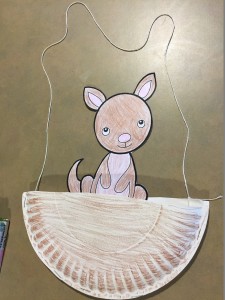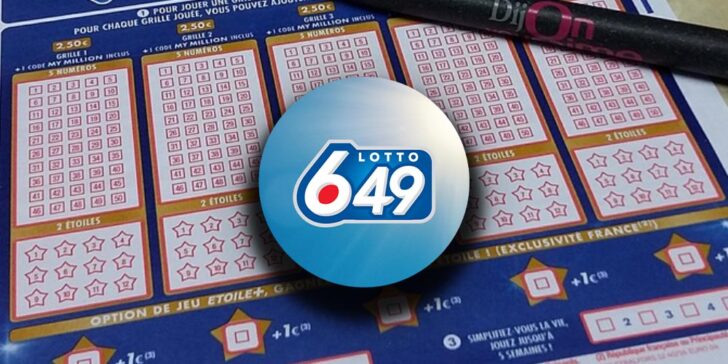Different Lotteries In Canada
Giving away money, lotteries and raffles in this territory are also known for giving away meat and other forms of food. The Western Canada Lottery Association gives Yukon residents the opportunity to win millions of dollars through the purchase of a single ticket. Three-Day Casinos. Permanent casinos are not allowed in the Yukon. What we spend on lotteries. Albertans spend the least on government-run lotteries ($225 per household) while residents of Nova Scotia spend the most ($278 per household). In the United States, lotteries are run by 48 jurisdictions: 45 states plus the District of Columbia, Puerto Rico, and the U.S. Lotteries are subject to the laws of and operated independently by each jurisdiction, and there is no national lottery organization. However, consortiums of state lotteries jointly organize games spanning larger geographical footprints, which in turn. Which Lottery Has the Best Odds? Not all lotteries are created equally. Although winning a lottery is based entirely on luck, it's theoretically easier to win some lottery jackpots than others and that’s because the jackpot odds are not the same for every lottery.The chance of winning secondary prizes is also not the same in every lottery and that’s because each lottery has different. “Draw-Based Lottery Game Played Online” means any of the games made available through OLG.ca from time to time that: (i) constitutes a “lottery scheme” for purposes of the Criminal Code (Canada), (ii) requires the Player to select a set of numbers or other play elements (whether chosen by the Player and/or randomly generated), and (iii.
Canada's biggest lottery jackpot — $54.3 million — was won by a group of 17 oil workers in Camrose, Alta., in October 2005.
What we spend on gambling, by income group
| After-tax income | Average expenditure | Expenditure as percentage of total income |
| All Canadians | $549 | 0.8 |
| Less than $20,000 | $491 | 3.6 |
| $20,000 to $39,999 | $539 | 1.8 |
| $40,000 to $59,999 | $527 | 1.1 |
| $60,000 to $79,999 | $555 | 0.8 |
| $80,000 and over | $618 | 0.5 |
How Many Lotteries Are There In Canada

United States Lotteries
Total ticket sales for that draw reached $99,474,164.
Out of almost 50 million tickets sold for that Lotto 6/49 draw, one extraordinarily lucky group had beaten the odds of one in 13,983,816.
It was Canada's greatest attack of lottery fever. There have been a few since then, including a $50 million prize in Canada's newest national lottery — Lotto Max. That was won by Marie and Kirby Fontaine of Sagkeeng First Nation, northeast of Winnipeg, in November 2009.
Those of us who do play the lottery — and approximately one-quarter of Canadians play weekly — have heard those odds many times before. Pay $2 and your odds of becoming a millionaire are approximately 1 in 14 million.
Your odds are even worse for winning Lotto Max. For $5, you buying a one in 28,633,528 chance at winning at least $15 million.

Those odds are so long that you are more likely to:
- Be killed in a terrorist attack while travelling (1 in 650,000).
- Die — during an average lifetime — of flesh-eating disease (1 in one million).
- Be killed by lightning (1 in 56,439).
You are three times more likely to be killed in a traffic accident driving 16 kilometres to buy your ticket than winning the jackpot.
In 2002, you were about 10 times more likely to die after being bitten by a poisonous snake or lizard than to win a Lotto 6/49 jackpot. Odds for the snakebite death are one in 1,241,661, according to the U.S. National Safety Council.
Want to increase your chances? Buy 50 tickets a week. You are very likely to win the jackpot at least once — in 5,000 years.
Gambling revenues and profits, Canada
| 1992 | 2005 | |
| Gambling revenue | $2.734 billion | $12.984 billion |
| Profits from gambling | $1.68 billion | $7.101 billion |
| Gambling as share of total government revenue | 1.9% | 5.5% |
Source: Statistics Canada
Say you're standing on a football field. You're blindfolded and holding a pin. A friend has released an ant on the field. Your chance of piercing that ant with your pin is about the same as winning a Lotto 6/49 jackpot. One in 14 million. Not exactly a sure bet.
You can increase your odds — for a price. You could try to buy enough tickets to cover all possible six number combinations, but at two bucks a shot, that comes out to $27,967,632.
Hardly seems worth the effort, even with the biggest jackpots, especially if two or three other people come up with the same idea.
Which Lottery Is Best In Canada
'Theoretically, you could try,' Pister told CBCNews.ca. 'But I don't think your tickets could be processed in time for the draw.'
Pister adds that when jackpots hit record territory, the bulk of sales tend to be recorded on the day of the draw, particularly in the afternoon.
South of the border, jackpots for the Powerball lottery have reached as high as $365 million. A group of eight workers at the ConAgra Foods plant in Lincoln, Neb., took home that prize in February 2006. The group opted to take their win in a lump sum payment rather than as annual payments. That reduced their win to $177.3 million — before taxes.


To play the Powerball lottery, you select numbers from two pools of numbers. You pick five numbers from a pool of 55 numbered balls. The sixth number — the Powerball — is picked from the second pool of 42 numbers.
Before April 2005, the first pool of numbers contained 53 balls. By adding two balls to that pool, the odds of winning decreased from around 1 in 120.5 million to 1 in 146.1 million. The longer odds meant fewer jackpot winners, which allowed the money to be carried over to the next draw, creating even bigger jackpots.
Mike Orkin, a professor of statistics at California State University, East Bay, and author of What are the odds?, describes the odds of winning the Powerball lottery this way:
'Let's say you have one friend in Canada, and you put everybody in Canada's name on pieces of paper, and put them in a giant hat and draw one out at random. Then, you are 2½ times more likely to pick your one friend's name than you are to win the Powerball jackpot if you buy a single ticket.'
What we spend on lotteries
Albertans spend the least on government-run lotteries ($225 per household) while residents of Nova Scotia spend the most ($278 per household).
Among one-person households, men spend more than twice as much on gambling than women - $763 a year compared to $369 a year. In those one-person households, men between the ages of 45 and 64 are the biggest spending group ($881) in their gender, while women over the age of 65 spend more than any other group ($435) of their gender.

Source: Statistics Canada: Perspectives on Labour and Income: Gambling
Orkin notes that bigger jackpots drive higher ticket sales — but he says that won't improve an individual's chance of winning. It does, however, improve the odds that in that pool of ticket buyers, there will be a winning ticket.
Buying the first ticket will increase the chance to secure financial freedom. No ticket, no chance. One ticket, you've improved that to facing astronomical odds. Buying more than one ticket makes your chances a little less astronomical.
If you want to win big, consider taking that $10 a week you might spend on lottery tickets and investing it. After 35 years, you will be guaranteed $100,314.56 — if you get an eight per cent return on your investment. With a 10 per cent return, your weekly $10 would be worth a guaranteed $166,742.59. Make it $12 a week and at 10 per cent, you've squirrelled away $200,091.10 after 35 years. Again, guaranteed.
Different Lotteries In Usa
Of course, the whole equation goes out the window if you didn't join the office lottery pool - and you're the only one who shows up for work the day after the numbers are drawn.